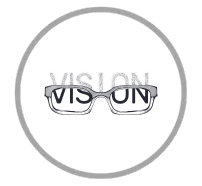Vision Rehabilitation
Empowering Low Vision Patients Daily
FSDAVCFEBFEVSDDVFSD
FSDAVCFEBFEVSDDVFSD
FSDAVCFEBFEVSDDVFSD
Understanding Low Vision Challenges
Low vision is a condition where visual impairment remains even after using corrective lenses, surgery, or medical treatments. It often results from advanced eye diseases such as age-related macular degeneration (AMD), glaucoma, or diabetic retinopathy. People with low vision may struggle with reading, facial recognition, or mobility, even when wearing glasses. Vision worse than 20/70 that cannot be corrected with standard solutions is considered low vision.
While it’s more common in older adults, younger individuals with inherited or chronic eye conditions can also be affected. With support from a low vision specialist in Houston, patients can learn adaptive strategies to maintain independence and improve daily life.
Low vision is a condition where visual impairment remains even after using corrective lenses, surgery, or medical treatments. It often results from advanced eye diseases such as age-related macular degeneration (AMD), glaucoma, or diabetic retinopathy. People with low vision may struggle with reading, facial recognition, or mobility, even when wearing glasses. Vision worse than 20/70 that cannot be corrected with standard solutions is considered low vision.
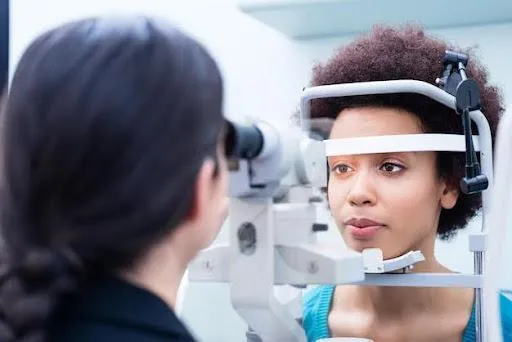
While it’s more common in older adults, younger individuals with inherited or chronic eye conditions can also be affected. With support from a low vision specialist in Houston, patients can learn adaptive strategies to maintain independence and improve daily life.

Types of Low Vision Support
Living with low vision doesn’t mean giving up independence. With the right tools and support, daily activities can become manageable again. Various low vision aids are available to assist with specific tasks. Handheld magnifiers are ideal for reading books, mail, or food labels. High-intensity lamps help improve visibility during close-up work. For digital tasks, electronic readers and screen magnifiers offer clear, enlarged text. Closed-circuit television (CCTV) devices provide powerful magnification, making them useful for reading or engaging in hobbies.
For distance viewing, such as watching television or reading street signs, telescopic or wearable magnifying glasses can be very effective. These devices are often customized based on each patient’s specific visual goals. At Kleinwood Vision, optometrists conduct a thorough evaluation of lifestyle needs and functional goals before recommending any aids or tools.
Even small adjustments can make a meaningful difference in maintaining independence. Patients with central vision loss from age-related macular degeneration (AMD) may benefit from eccentric viewing training, which teaches how to use peripheral vision more effectively. This type of support is a key part of the low vision rehabilitation services offered by Kleinwood Vision, helping individuals adapt and continue living life on their terms.
Daily Vision Training and Adaptive Techniques
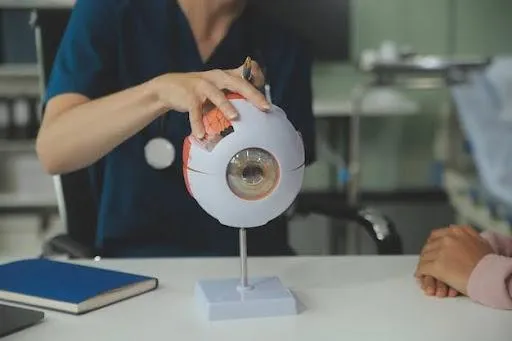
Effective low vision care goes beyond providing devices—it includes teaching patients how to use them confidently. Vision rehabilitation specialists offer training tailored to each person’s specific needs, helping them get the most out of their tools. Techniques like contrast enhancement—using bold-lined paper or applying high-contrast tape to stairs—can make home navigation safer and more manageable.
At Kleinwood’s optometry low vision clinic, care is hands-on and personalized.

Patients learn how to adapt to challenges like blind spots or reduced visual fields with practical strategies that fit their daily lives. Specialists assist with setting up devices such as magnifiers, improved lighting, or electronic aids, ensuring patients feel comfortable and independent when using them. This comprehensive support empowers individuals with low vision to stay active, safe, and engaged in everyday tasks, helping preserve both confidence and quality of life.
Working with a trained provider also allows patients to track vision changes and adjust their strategies or tools as needed. Regular follow-ups ensure that as vision shifts—whether gradually or suddenly—care plans remain effective and supportive. This ongoing monitoring helps patients stay ahead of challenges and continue managing their condition proactively. By maintaining communication with a specialist, individuals can make informed decisions about their vision care and adapt with confidence.
Whether the goal is to read a favorite book, cook a meal, or safely walk through the house, consistent training makes once-challenging tasks feel less overwhelming and more manageable. A trained provider not only teaches the use of low vision aids but also offers encouragement and personalized techniques for everyday situations. These practical skills become part of a new routine, helping patients maintain independence and enjoy daily life, even while navigating the effects of low vision.
Improving Everyday Life at Home Safely
Adapting the home environment is essential for living with low vision. Practical steps like labeling items with large print, tactile markers, or Braille can make a big difference. Medications, kitchen spices, and important appliances become easier to identify, reducing confusion. Talking devices such as clocks or prescription bottles further support independence by helping users stay on schedule without relying on sight.
Organizing spaces to minimize clutter lowers the risk of accidents and improves safety. Keeping pathways clear and marking steps with contrasting tape helps prevent falls and enhances mobility. These thoughtful changes not only promote physical safety but also reduce anxiety about moving through familiar spaces. Creating a well-adapted home environment supports confidence and comfort for individuals living with low vision.
Emotional Support and Community Connections
Adjusting to vision loss can take a toll on emotional well-being. Feelings of isolation or frustration are common, particularly when once-simple tasks become difficult. Accessing emotional support through local or national organizations can help individuals cope with these changes.
Support groups create a sense of belonging, allowing people to share their challenges and successes.
Adjusting to vision loss can take a toll on emotional well-being. Feelings of isolation or frustration are common, particularly when once-simple tasks become difficult. Accessing emotional support through local or national organizations can help individuals cope with these changes.
Support groups create a sense of belonging, allowing people to share their challenges and successes.
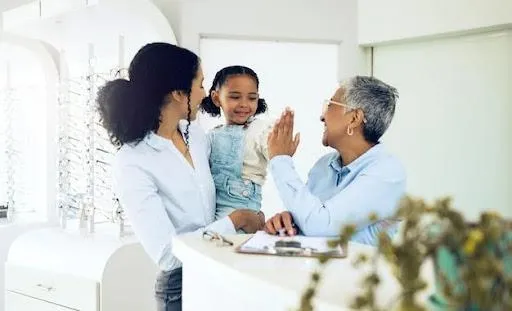

Counseling services can also help patients work through grief or fear associated with their condition. Organizations like the National Federation of the Blind or Vision Loss Rehabilitation Canada offer virtual and in-person resources.
In the Houston area, Kleinwood Vision also provides access to professional help and resources, connecting patients with the tools they need for both physical and emotional recovery. Seeking this kind of comprehensive care makes it easier to navigate the journey.
Taking the First Steps Toward Help
Getting started with low vision care begins with a detailed consultation. An optometrist experienced in low vision care will thoroughly assess your remaining vision, discuss specific challenges you face daily, and recommend tools or strategies that align with your lifestyle. This personalized evaluation forms the foundation of a tailored care plan designed to maximize your independence and improve your quality of life. By understanding your unique needs, the care team can help select appropriate aids, training, and techniques to support your ability to perform everyday activities comfortably.
Importantly, patients are never alone in this process. Clinics such as Kleinwood Vision’s low vision rehabilitation service provide ongoing, compassionate support. From adjusting magnifiers and electronic reading devices to suggesting home safety improvements, their experienced team works closely with individuals to empower them. Regular follow-ups ensure that as vision changes, devices and strategies are updated to maintain confidence and capability in daily living.
Patients and their families should consider scheduling a visit as soon as vision loss begins to interfere with essential tasks like reading, working, or moving safely around the home. Early intervention facilitates smoother adaptation to low vision aids and coping strategies, reducing frustration and improving overall functioning. The earlier care begins, the better the outcomes typically are.
Research and clinical experience emphasize the value of timely low vision care. Starting support early helps preserve independence, reduce anxiety, and enhance quality of life. At Kleinwood Vision, the commitment is to guide you with expert care every step of the way.
Tools Designed to Boost Your Confidence
Low vision tools do more than help you see—they help you live. By making specific tasks manageable, these aids restore a sense of confidence and self-reliance. Whether it’s using a screen magnifier to read emails or a wearable telescope to enjoy family outings, these devices can be truly life-changing for individuals with vision challenges.
With the help of trained low vision specialists, patients can learn to integrate these tools into their daily routines effectively.
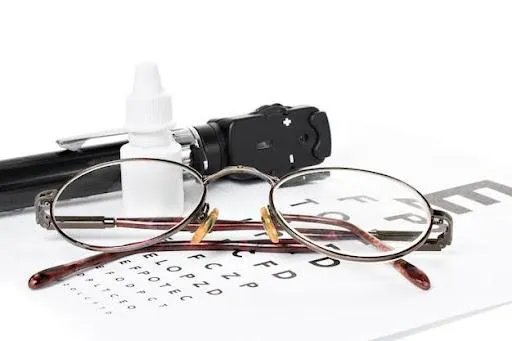
Low vision tools do more than help you see—they help you live. By making specific tasks manageable, these aids restore a sense of confidence and self-reliance. Whether it’s using a screen magnifier to read emails or a wearable telescope to enjoy family outings, these devices can be truly life-changing for individuals with vision challenges.
With the help of trained low vision specialists, patients can learn to integrate these tools into their daily routines effectively.
If you’re frequently on the move or prefer not to wear glasses, multifocal contacts offer more freedom and convenience. They provide clear vision at multiple distances without the need for switching glasses, making them ideal for active lifestyles.
This adaptation process takes time and patience but often leads to restoring a sense of normalcy and independence. Specialists provide personalized training and support, ensuring each patient can use their devices with confidence and ease.
Choosing the right low vision aids and receiving proper instruction is key to success. Tailored recommendations, combined with ongoing guidance, empower patients to overcome obstacles and maintain an active, fulfilling lifestyle despite vision limitations.
Moving Forward Together with Strong Support
Living with low vision may feel overwhelming at first, but professional support makes a significant difference. Personalized rehabilitation, tailored to individual needs, along with the right tools, provides a strong foundation for maintaining independence. Emotional resources are equally important, helping patients adjust to vision changes and build confidence. This comprehensive approach ensures that daily challenges become more manageable, allowing individuals to continue enjoying life with dignity.
Scheduling a low vision consultation at Kleinwood Vision is a proactive and empowering first step. During this appointment, patients explore various magnifiers for vision loss, learn safe home strategies, and receive guidance on retaining confidence in everyday activities. With expert care and ongoing support, patients can adapt successfully and live fuller lives despite vision limitations. Early intervention and personalized care are key to thriving with low vision—contact us today to begin your journey toward greater independence and quality of life.

Contact Info
Hours of Operation
Mon - Fri | 9:00 AM - 5:00 PM
Sat - Sun | Closed
Holiday Hours: We are closed for the following holidays: New Years Day, Memorial Day, Independence Day, Labor Day, Thanksgiving Day, Christmas Day
© 2026 Kleinwood Vision. All rights Reserved.

